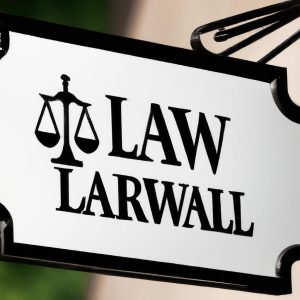The Two Most Important Purposes of Estate Planning and Who Decides If Probate Is Needed
Estate planning is a critical aspect of managing your assets and ensuring your wishes are carried out when you pass away. It serves two primary purposes: protecting your assets and providing for your loved ones. In this comprehensive guide, we’ll delve into these key objectives of estate planning and explore who has the authority to determine if probate is needed in New York.
The Two Main Purposes of Estate Planning
Estate planning is about more than just distributing your assets. It encompasses a wide range of legal and financial considerations, but two purposes stand out as the most important:
1. Asset Protection
One of the primary goals of estate planning is to protect your assets from various threats, including:
- Probate Costs: Probate can be expensive, and the process often involves court fees, legal fees, and other administrative costs. Proper estate planning can help minimize these expenses.
- Creditors: Estate planning allows you to structure your assets in a way that protects them from potential creditors or lawsuits.
- Taxes: Effective estate planning can reduce the tax burden on your estate, ensuring that more of your assets go to your heirs and beneficiaries.
Through strategies like trusts, gifting, and tax planning, you can safeguard your wealth and minimize the impact of these financial challenges.
2. Providing for Loved Ones
Another critical purpose of estate planning is to provide for your loved ones after you’re gone. This includes:
- Asset Distribution: Estate planning enables you to specify how your assets should be distributed among your heirs and beneficiaries. This can help prevent disputes and ensure your wishes are honored.
- Guardianship: If you have minor children, you can use estate planning to designate guardians who will care for them in the event of your passing.
- Charitable Giving: Many individuals use estate planning to support charitable causes and organizations they care about.
By creating a clear plan for asset distribution and addressing the needs of your loved ones, you can provide financial security and peace of mind to your family.
Who Decides If Probate Is Needed?
Probate is the legal process that validates a will and oversees the distribution of assets to beneficiaries. However, not all estates go through probate, and the decision largely depends on several factors:
- Executor or Administrator: The named executor in the will or a court-appointed administrator typically initiates the probate process. They file the will with the appropriate New York Surrogate’s Court and follow court instructions regarding probate.
- Beneficiaries and Heirs: Beneficiaries and heirs have the right to contest the need for probate if they believe it’s unnecessary. They can provide evidence that assets can be transferred without probate, such as through joint ownership or beneficiary designations.
- Attorneys and Legal Experts: Estate planning attorneys and legal experts can provide guidance on whether probate is required. They review the estate’s assets and ownership structure to determine the most efficient way to transfer them to beneficiaries.
In New York, the need for probate is determined by various factors, including the ownership structure of assets, estate value, and the validity of the will. The decision to initiate probate typically rests with the named executor or court-appointed administrator. Beneficiaries, heirs, and legal experts also play a role in contesting the need for probate when applicable.
In conclusion, estate planning serves the critical purposes of asset protection and providing for your loved ones. It involves a range of strategies to minimize financial challenges and ensure your wishes are carried out. When it comes to probate, various parties, including the executor, beneficiaries, heirs, and legal experts, influence the decision based on the unique circumstances of the estate.






